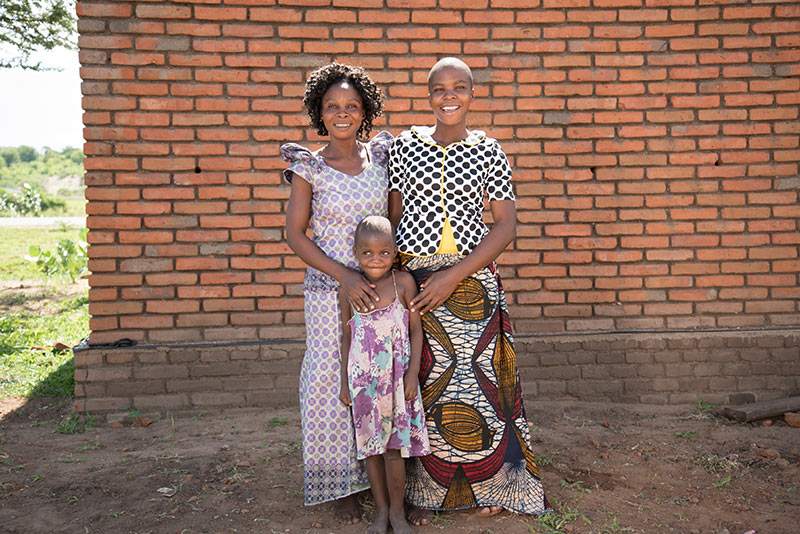‘The saddest moment of my life?” muses mum-of-four Tamara Kaonga. “When my husband took a second wife.”
“I told him no, I can’t live like this. He listened to me and divorced her.” Tamara and her husband Enode are still together, and today care for their own family, two orphaned children adopted from the village, and two grandchildren.
The family dynamic has gone through other complications, with Tamara throwing her daughter Yvonne out of the house when she became pregnant at 17. For Yvonne, this was her saddest moment. “She chased me away from the house. It shattered her hopes for me and left her completely broken,” she says.
Tamara, who lives in Mwambero village in Northern Malawi is HIV-positive. However, she continues to look on the bright side.
Receiving training through Self Help Africa’s DISCOVER programme, Tamara increased her crop yields and is now harvesting enough to feed the family for the entire year, with a surplus to sell. She also attended an enterprise training course for women and set up a business producing and selling herbal tonics to supplement her farm income.
Tamara can now afford to educate all of her children, an immense source of pride.
Meanwhile, Yvonne is now a mother to two young children and has returned to both school and the family home. “I felt like I was doing an injustice to myself by dropping out of school. I want to finish and be a role model, both to my siblings and my children.”
She hopes to attend university, but being a woman in Malawi, faces additional challenges.”When I got pregnant, I had to drop out of school. But the one who’s responsible continues, he finishes school. I can’t say that we are given the same opportunities.”
Family is at the heart of everything for Tamara and Yvonne. Setting a positive example for her siblings and children has motivated Yvonne to continue her education, while the desire to be cared for has driven Tamara’s determination for her children to be well-educated. “If all my children can go to school and finish, the future is very bright for me – it means that I will have people who will be looking after me,” she says.

